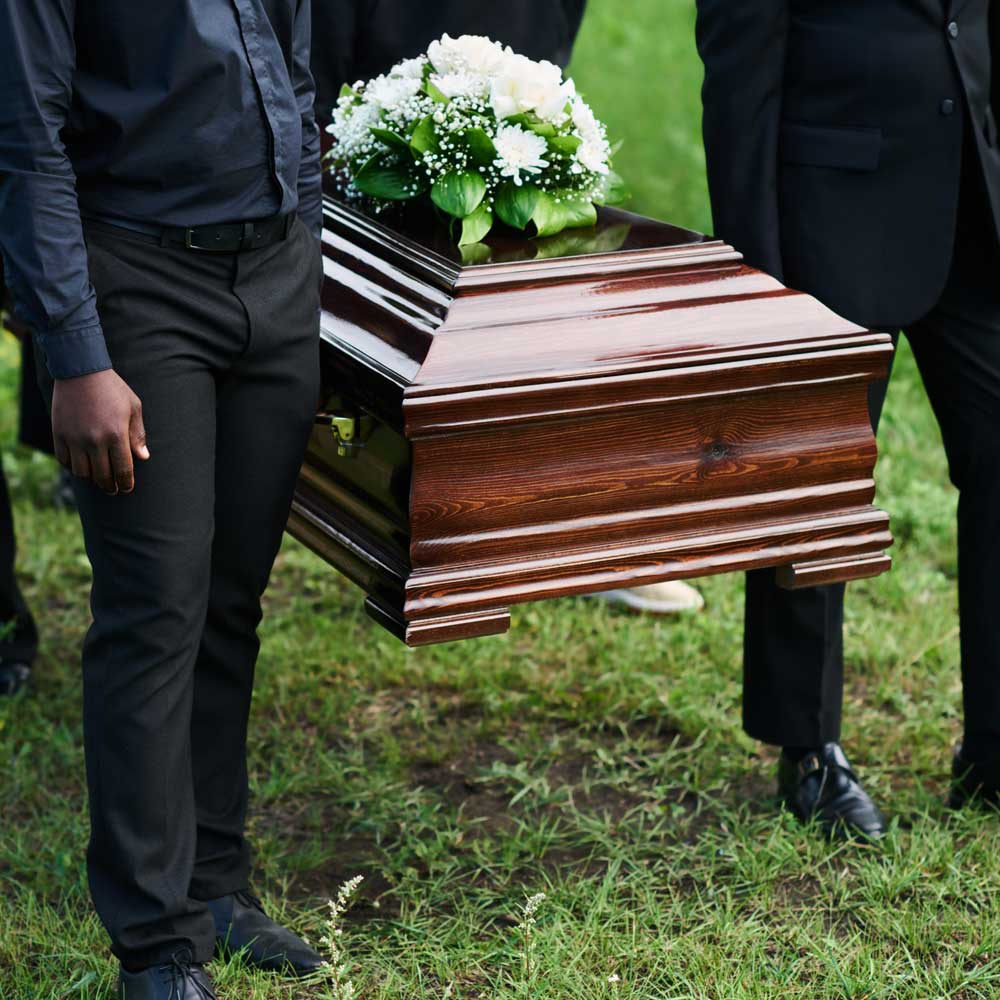Funeral Home
Transportation Cremation Services
In moments of loss, we offer solace and support, ensuring every farewell is a dignified tribute to a life cherished.
With compassion as our cornerstone, we provide a guiding light through the darkest of times, helping you honor.
Arrangements
Transportation
Cremation
Preparation
Compassionate Farewell: Our Core Funeral Services
Assisting families in planning and organizing funeral services tailored to their cultural, religious, and personal preferences. Offering compassionate guidance and support to bereaved families throughout the grieving process, including counseling services and resources for coping with loss.
- Customer Service
- Quality Products
- Innovation
Every interaction is an opportunity to make a positive impact
Since 2024
Compassionate Offerings
Tailored Services for Your Peace of Mind
Funeral services
Documentation
Cremation
Transportation

For pricing details, feel free to contact us
Farewell Fare Options
Tailoring the Perfect Tribute to Your Loved One
Memorial Tribute
Honoring Lives Remembered
75
year
Lawyer
James Reynolds
67
year
Engineer
Benjamin Hayes
81
year
Teacher
Emily Johnson
58
year
Accountant
Sophia Anderson
86
year
Physician
William Carter

Funeral Services
Specializing in deceased care removal
Newest Articles & Insights
Latest Posts
Journey Through Grief: Discover Insights and Comfort in Our Blog's Reflections and Remembrances

When Death Occurs
Handling the death of a loved one is never an easy task. We’ve put together some of the important information you’ll need to make the initial decisions, reach out to the appropriate people, and begin the process of designing your loved one’s final farewell. Remember that, as you begin to cope with your loss, it’s often a good idea to enlist the help and support of a trusted friend in making the necessary arrangements. If you have any questions about your next steps, the options available to you, or what the funeral arrangement process will entail, allow Cobb Care & Comfort to walk you through this information in more detail and answer your questions. Don’t hesitate to contact us for anything you might need. This is where our profession and loyalty lies. Within Hours When a death occurs at home or in the workplace, you’ll need to contact emergency personnel or your loved one’s physician if he or she was under medical care. If no one else was present when the death occurred, you’ll also need to notify the police before the deceased is moved to a secondary location. When a death occurs while your loved one is in a hospital, care facility or hospice program, the professional staff will notify you and contact the appropriate authorities. If you’ve already given them the name of a funeral home, the facility will contact them as well. The next steps involve registration of the death, and the processes and documentation involved depend upon the circumstances. At this moment if you contact Cobb Care & Comfort, we will help to guide you through obtaining proper protocol to proceed with official services for your loved one. If you’re ever unsure of whom you should notify or what your next steps should be, Please allow us to assist in determining the appropriate course of action for your particular situation. Within the First Few Days After taken care of the initial necessary arrangements, Cobb Care & Comfort will then create official announcement to notify friends and relatives of the death. If it is too painful for you to do this yourself, have no worries because we will take care of you and your family. Now is the time we will review any prearranged wishes or plans your loved one may have put in place. We will meet with the professionals at your chosen funeral home to discuss your options and begin designing a funeral to honor your loved one. Following this we will need to move further in all aspects regarding your loved one celebration of life. We’re well-versed in all topics relating to the loss of a loved one, and we’d be honored to provide you with answers, advice, and guidance in your time of need. A Network of Support Your initial call with Cobb Care & Comfort will allow us to inquire about any prearrangements and gather the information we need to transport your loved one to the funeral home, but you can also feel free to ask any questions you may have and resolve any of your initial concerns. At later meetings you’ll be able to discuss your arrangements in greater detail, but we’re always available in your time of need to provide emotional support, a sympathetic ear, and careful guidance. Know that, during your time of loss, your greatest resource will be loved ones who want to offer their assistance in any way they can. We encourage you to get in touch with relatives, neighbors, friends, clergy members or other spiritual advisors, and other trusted members of your community. They are often more than happy to prepare food, look after children, help with arrangements, or simply offer a kind word and open arms. What If There Aren’t Any Prearrangements? If your loved one has not specified any arrangements or preferences beforehand, there are some initial questions we will likely need to answer during consultation once you’ve chosen the funeral home of your choice: These questions are just a starting point, and you don’t need to know the answers right away. Start thinking about your decisions and contact us to gain a better understanding of your options and discuss what might be the most appropriate solution for your situation. We’re here to make this process easier for you, and we can start by making sure that you have all of the information and guidance you’ll need. What to Expect When You Meet With Us When you meet with a member of our staff to discuss your arrangements, we’ll first provide you with a general price list to give you a basic idea of what our services cost. We’ll then walk you through the entire arrangement process, and ask you about your loved one to gain an understanding of the person the services will honor. Use this time to communicate your ideas and preferences, share your loved one’s life story, revisit memories and highlight their accomplishments. Our professionals will use this information to guide you in the creation of a personalized, meaningful celebration of your loved one’s unique journey. This process may include: Theres many more steps during this process, this was just to name a few. To help express your loved one’s personality and life story, feel free to bring any memorabilia – like photos, videos, music, crafts, or treasured items – that might give us a better understanding of how you envision paying tribute to your loved one. Even if you’re not sure how a particular aspect of their life might be incorporated, don’t hesitate to ask; we can often make unique suggestions on a way to add that element as a special touch to their service. We’d like to make this process as smooth and stress-free for you as we can, and you can come prepared for your meeting by making sure that you have the following information about your loved one on hand when you meet with our professionals to discuss your arrangement process:

Explaining to children & Teens
When a loved one dies, it can be difficult to know how to help kids cope with the loss, particularly as you work through your own grief. By being open and honest, encouraging communication, and sharing your own feelings, you and your children cope with painful times and begin your healing journey together. Childhood and Grief A child’s ability to understand death varies according to his or her age. Infants and Toddlers feel a loss through the absence of a loved one, interruption in their regular routine, and through the grief and stress they sense in their parents or other family members. Make sure to spend extra time holding and cuddling the child and try to keep them on a regular schedule as much as possible. Younger children might have trouble understanding the permanence of death or differentiating between fantasy and reality. They also might believe the death of a loved one is a form of punishment for something the child did. When you talk to young children about death, make sure to use concrete language, avoid euphemisms, and reassure the child that the death is not a consequence of something he or she did. Older children are beginning to understand the permanence of death and might associate it with old age or personify it in terms of frightening images or a cartoonish boogeyman. They often know more about how the body works and have more specific questions. It’s important to answer their questions to the best of your ability, and provide as much specific, factual information as possible. Try to keep them to regular routines and give them opportunities for the constructive venting of feelings and grief. Teenagers process grief more like adults, experiencing anger and sadness as they begin to cope. Don’t feel disappointed if it seems that they may want to talk more to their friends than to parents, this is normal and can help them to share their feelings and heal. Because their grief is similar to that of an adult, a teenager may take longer to recover from a loss than a younger child. Questions may come up about mortality and vulnerability, and your role is to empathize with them, listen to their concerns, and remind them that their feelings are normal, and things will get better with time. Tips for Talking to Children about Death Helpful Resources The following links provide more detailed information on a variety of topics related to helping children and teens cope with loss. When Families Grieve™ This guide was created by Sesame Workshop, the educational organization behind Sesame Street. It explores children’s understanding of death and offers information about communicating, ideas for coping together, and ways to move forward with your children after a loss. Launch Site Helpful Children’s Books This list recommends children’s books that deal with death and grief. These easy-to-read stories can open up a meaningful discussion between you and your child, and help children make sense of their feelings and understand what they’re experiencing. Launch Site More Advice Here you’ll find a Huffington Post article by Judith Acosta containing advice and guidance from her book Verbal First Aid, which counsels parents on ways to help kids heal from fear and pain in a variety of situations, including the death of a loved one. If you find the advice in the article helpful, you may want to read her book for even more insight. Launch Site

Funeral Etiquette
When attending a visitation or funeral, you might find yourself uncertain of what you should wear, what to say, or what to do. We’ve put together a short guide to the basics of funeral home etiquette to help you pay your respects with courtesy and consideration. What to Wear Try to find out the dress code before you attend, so that you can be sure you’ll fit in and look appropriate. If you aren’t sure, simply try to dress in a conservative way that shows respect for the family and other mourners. This doesn’t necessarily mean you must wear black (in fact, some families specify “no black” for their services), but try to avoid overly bright colors. For men, a suit and a conservative tie is usually a safe bet. Women should generally wear a conservative dress, skirt, or pants with a tasteful blouse. Its imperative to just dress accordingly to show dignity and respect. Religious & Ethnic Customs Traditions and customs differ among various communities, ethnic groups and religions, and it’s often helpful to ask beforehand about any special considerations you need to consider. We can answer many of your questions, and can also point you toward resources that offer specific and detailed guides. Emotions A funeral is an emotional time, and grieving is a natural part of the healing process. Don’t feel uncomfortable if you or the bereaved begin to cry. However, if you find yourself becoming extremely upset, it is kinder to excuse yourself to avoid increasing the strain on the family. Greeting the Family Upon arrival, approach the family and express your sympathy with an embrace or by offering your hands. Don’t feel that you should avoid talking about the person who has died…in fact, talking can help the grieving process to begin. Also, remember everyone grieves differently, and may not want to discuss the transition of the deceased. Our suggestion is that you use wisdom and your best judgment in your approach. What to Say Express your sympathy in your own words, however it feels right to you. Kind words about the loved one who has passed are always appropriate, and a simple “I’m sorry for your loss” or “My thoughts and prayers are with you” can be meaningful and comforting for the bereaved. What Not to Say Don’t ask the cause of death; if the family wants to discuss it, let them bring it up. Avoid giving unsolicited advice, or making comments that might unintentionally diminish the importance of the loss, such as “I’ve been through this before.” Paying Respect At a service with an open casket, it’s customary to show your respect by viewing the deceased and, if you wish, spending a few moments in silent prayer. The family may escort you to the casket, or you might approach on your own. Viewing the deceased is not mandatory, however, and you should act according to what is comfortable to you. How to Act After you’ve offered your condolences to the family, it’s perfectly appropriate to engage in quiet conversation with friends and other associates of the deceased who attend the visitation. Don’t feel that you have to stay longer than you feel comfortable; your presence means a lot to the family, no matter how long or short the visit. Flowers and Gifts Sending flowers, making a donation, or giving a memorial gift are all meaningful gestures to let the bereaved know that they are in your thoughts. The simplest of tributes can be of great comfort to the family, and can express your sympathy when words just aren’t enough. Turn Off Your Cellphone or Silence ItThis one should go without saying. If you choose to bring your phone into the funeral, take a moment to make sure you’ve turned it off. This gesture just shows honor and respect



